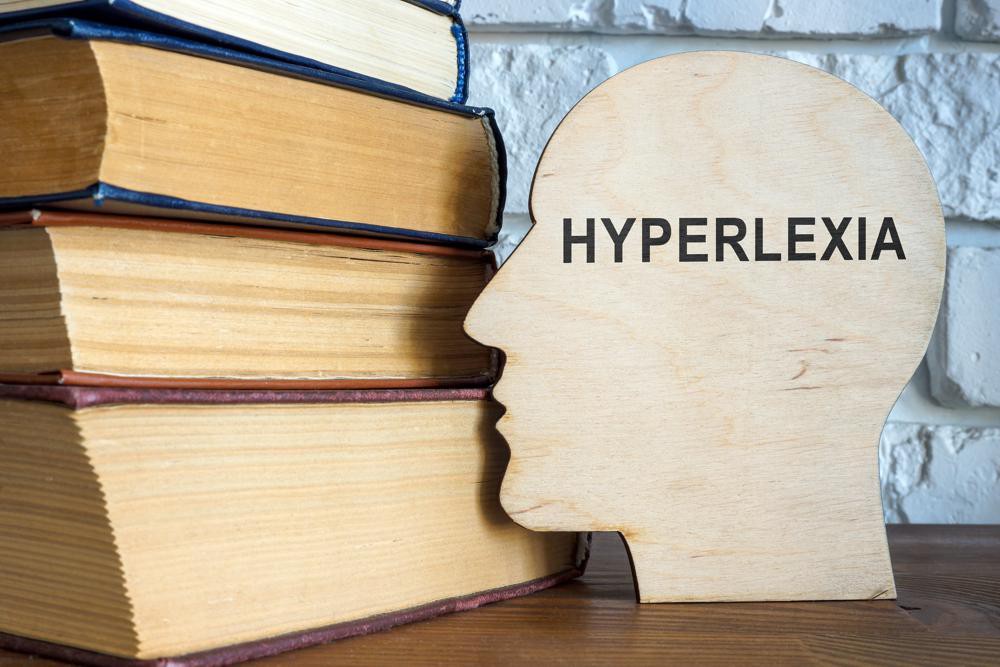Benjamin Avshalomov
What is Hyperlexia?
Hyperlexia is a term that describes a child's precocious ability to read. Children with hyperlexia might show an intense interest in all printed material and could be able to read as early as 18 months old, before any real language skills have even developed. Hyperlexia is not a diagnosis by itself and does not appear as an official diagnosis in psychological diagnostic manuals. The term is used as a practical label to provide parents, educators, and mental health professionals with a better understanding of how a child with hyperlexia might think and learn. This is particularly important because hyperlexia often co-exists alongside Autism Spectrum Disorder (ASD) and other developmental disorders.
Children with hyperlexia may also show the following behaviors:
- • Demonstrate the intent to communicate.
- • Learn to speak in a peculiar way; echo or memorize the same sentence structure; echo speech of others; reverse pronouns.
- • Listen selectively; may be suspected of being deaf or seem “tuned out”.
- • Have difficulty understanding and/or answering questions beginning with: who? why? what? when? where? and how?
- • Rarely initiate social conversation.
- • Think in concrete, literal terms; have difficulty with abstract concepts.
- • Possess very strong auditory and /or visual memories.
- • Have an intense need to develop or keep to routines in daily life; sometimes showing ritualistic and/or obsessive behaviors.
- • Have difficulty understanding and/or accepting changes and transitions.
- • Develop specific or unusual fears.
- • Display unusual sensitivities to sounds, odors, tastes or textures.
- • Exhibit self-stimulatory behaviors.
Hyperlexia and ASD
It is estimated that in the United States a little more than 6% of children with ASD might also be hyperlexic. Although not every child with hyperlexia will struggle with ASD. Of those children with hyperlexia, it is estimated that 84% have ASD or characteristics of ASD. It's important to note that although ASD has been associated with high levels of reading skills across both comprehension and decoding this does not meet the definition for hyperlexia. With hyperlexia, comprehension might be limited to individual words at the expense of skills involving integration and inference. Some studies have revealed that children with hyperlexia and ASD perform significantly worse at reading comprehension tasks than children with just ASD. Hyperlexia might be associated with improved visual perception and might serve as visual stimulation engaging pattern detection and manipulation.
Interventions
It is important to seek an evaluation if your child is exhibiting signs of hyperlexia. Clinicians use neuropsychological evaluations to tease out any possible developmental concerns and gain a better understanding of how a child might think and process information. More specifically, testing might involve assessments on letter and number knowledge, assessing decoding, spelling, comprehension, noting discrepancies and to what extent the discrepancies are a problem.
Children with hyperlexia have a unique learning style. Effective techniques that have been developed for children focus on the specific teaching of language and social skills. Parents, teachers, and clinicians must actively and continuously consult regarding what provides the optimal situations for the child and what strategies are required for optimal intervention. Proactive and collaborative approaches enable all parties to anticipate and prepare for the child’s responses to a new school year, and to attempt to circumvent possible difficulties and challenges on the road ahead.
RESOURCES
https://www.sciencedirect.com/science/article/pii/S014976341630639X
https://www.andnextcomesl.com/2016/06/diagnosing-hyperlexia.html



